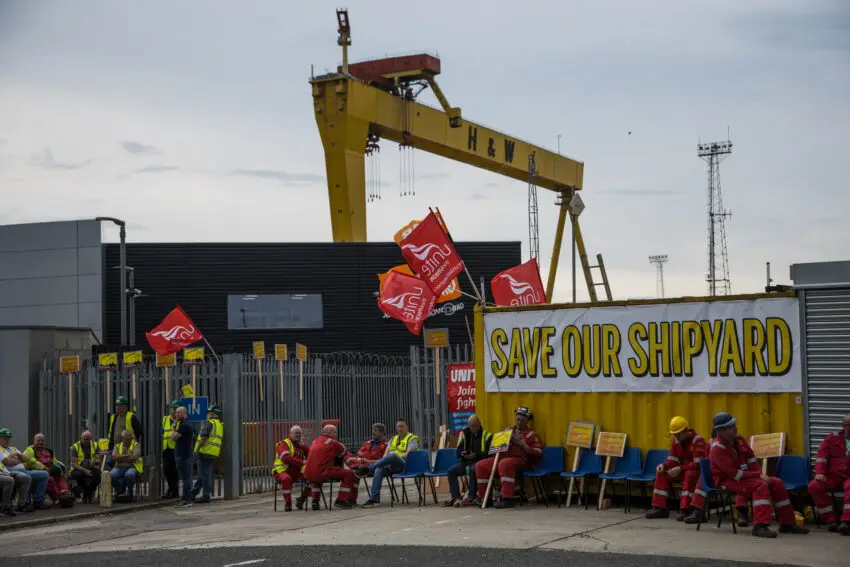Northern Ireland’s economy is facing a whirlwind of uncertainty and concern. A series of major developments have left thousands of jobs hanging in the balance, creating anxiety among employees and communities alike.
With Airbus acquiring a significant part of Spirit AeroSystems’ Belfast plant and Harland & Wolff seeking a substantial government loan guarantee, the future of the local workforce and broader economic impact remains unclear.
Airbus Acquisition Raises Concerns
Airbus has agreed to acquire parts of Spirit AeroSystems’ operations in Belfast. This move has sparked fears about job security among many employees. The larger deal includes Boeing purchasing Spirit AeroSystems for $4.7 billion. However, only around 40% of the 3,500 workers at the Belfast plant are covered under this agreement.
Spirit plans to sell other parts of the factory not involved in Airbus manufacturing programmes. This decision is creating uncertainty regarding the future operations of these sections. Alan Perry, senior organiser at GMB Union, highlighted this predicament, stating workers are being left “in limbo.”
Political Voices and Union Concerns
Representatives from the Democratic Unionist Party (DUP) and Ulster Unionist Party (UUP) have voiced their worries. DUP’s Ian Paisley Jr. suggested that having a single buyer for the entire site would be the most effective way to secure all jobs and maintain site sustainability.
The historic Spirit Belfast operations, originally part of Short Bros, have been crucial to Northern Ireland’s aerospace industry. Michelle O’Neill, the First Minister of Northern Ireland, and Economy Minister Conor Murphy have both pledged to support Spirit and its workforce during this transition.
Harland & Wolff’s Financial Struggles
In another development, trading of shares in Harland & Wolff, the Belfast-based shipbuilder, was temporarily suspended. The suspension occurred because the company failed to publish independently audited accounts on time.
Harland & Wolff employs about 1,000 people across Belfast, Scotland, and Devon. The shipbuilder is seeking a £200 million government loan guarantee to secure its finances.
GMB Union’s Perry commented that the suspension of Harland & Wolff’s shares was “concerning but not alarming.” He mentioned recent reassurances had been received about the company’s financial health.
Broader Economic Impact
Unite the Union estimates that an additional 7,000 jobs in Northern Ireland are linked to supplying Spirit AeroSystems’ plant. This highlights the broader economic impact of these developments.
Suzanne Wylie, Chief Executive of the Northern Ireland Chamber of Commerce and Industry, emphasised the importance of the Spirit site to the regional economy. She noted its role in providing skilled jobs, boosting local supply chains, and enhancing Northern Ireland’s international reputation.
Governmental Perspective
Both the First Minister and Economy Minister have underscored their commitment to protecting the workforce during these transitions. This involves working closely with Spirit AeroSystems to ensure minimal disruption.
There is a strong governmental push to maintain all parts of the business in Northern Ireland amidst the proposed changes in ownership. This, they argue, is vital for the regional economy and employment figures.
Community Reactions
The uncertainty has sparked widespread concern among the local communities. Many families are worried about the potential loss of jobs and its effects on their livelihoods.
Community leaders are urging the government and involved corporations to prioritise the workforce’s well-being. They stress the importance of swift and clear actions to mitigate the economic impact.
The Northern Ireland economy stands at a crossroads with significant changes unfolding. The future of thousands of jobs and the broader economic landscape hangs in the balance.
As Airbus and Harland & Wolff navigate their respective challenges, the local workforce and political leaders continue to seek assurance and stability. The coming months will be crucial in determining the economic fate of the region.


